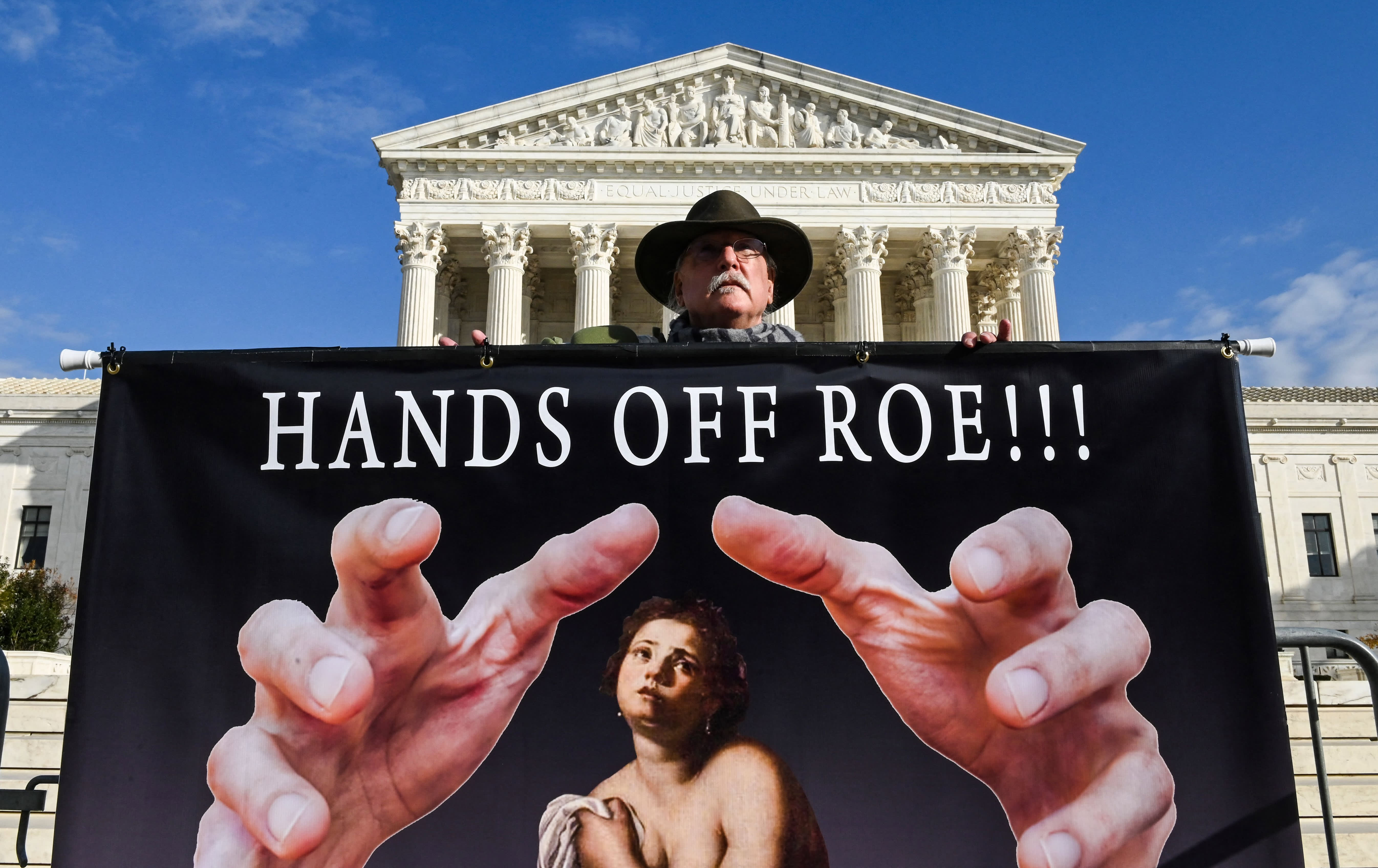The Supreme Court is about to hear arguments in the most significant abortion case in decades, throwing into doubt the future of Roe v. Wade and other longstanding rulings that have upheld the right to an abortion.
The case, Dobbs v. Jackson Women’s Health, will be heard Wednesday starting at 10 a.m. ET. It centers on a Mississippi law that would ban almost all abortions after 15 weeks of pregnancy. Lower courts blocked the law, ruling that it violates the rights enshrined by the Supreme Court’s decisions in Roe in 1973, as well as in 1992’s Planned Parenthood v. Casey.
Taken together, those rulings have held that states cannot ban abortion before the point of fetal viability — around 24 weeks of gestation — and that laws restricting abortion should not pose an “undue burden.”
The Mississippi case marks the most direct challenge to those rulings in nearly three decades. It will be heard by a historically conservative high court, in which six of the nine justices were appointed by Republican presidents, including three by former President Donald Trump.
The petitioners, Mississippi state health officials Thomas Dobbs and Kenneth Cleveland, argue that the 15-week abortion ban should be upheld because the U.S. Constitution does not support a right to abortion. Since the law is at odds with the pre-viability abortion protections of Roe and Casey, the petitioners argue that the precedent established by those two cases should be overturned.
“Roe and Casey are egregiously wrong,” Mississippi argued in a court brief. “The conclusion that abortion is a constitutional right has no basis in text, structure, history, or tradition.”
The state officials also say that Roe and Casey are outdated, pointing to advances made in the accessibility of adoption services and contraception, as well as “scientific advances” made about our understanding of fetuses.
If the Supreme Court does not overrule Roe and Casey outright, Mississippi said, “it should at a minimum” uphold the state’s 15-week abortion ban and re-think the protections for pre-viability abortions.
Jackson Women’s Health Organization, the only abortion provider in Mississippi, in court filings urged the Supreme Court to “reject the invitation to jettison a half-century of settled precedent and to abandon a rule of law that this Court has said uniquely implicates the country’s ‘confidence in the Judiciary.'”
Because pregnancy “so intensely impacts a woman’s bodily integrity, her liberty interests are categorically stronger than any state interest until viability,” the provider argues.
The right to choose whether to have an abortion, established by Roe and reaffirmed by Casey over the course of two generations, “has been further cemented as critical to gender equality,” the clinic says.
The court is expected to issue its ruling by early July.
Oral arguments in Dobbs will come before rulings arrive on a pair of cases challenging a restrictive Texas abortion law. The court fast-tracked those cases after its handling of disputes surrounding the Texas law generated controversy and criticism.
In September, a bare majority of five justices voted not to block the implementation of a Texas law, S.B. 8, which empowers private citizens to enforce a ban on most abortions after as early as six weeks of pregnancy. The late-night ruling on the “shadow docket,” in which Chief Justice John Roberts sided with the court’s minority of liberals, sparked fiery condemnations from abortion advocates and exacerbated their fears that abortion rights face an existential threat.
At least one public opinion poll conducted after that ruling showed Supreme Court approval at an all-time low. A number of conservative justices, including Trump appointee Amy Coney Barrett, spoke out in defense of the court amid the barrage of criticism.
The court in late October effectively combined two separate challenges to S.B. 8 and scheduled them for briefing and argument on an expedited basis. But the justices only considered the question of whether the petitioners had the ability to challenge the law, with its unusual enforcement mechanism, in a lower court.
Critics say that the law, by relinquishing enforcement powers from state officials and giving them instead to private citizens, was designed to evade judicial scrutiny. Meanwhile, abortion advocates say that clinics in neighboring states have been overwhelmed with Texas patients traveling long distances for care.
